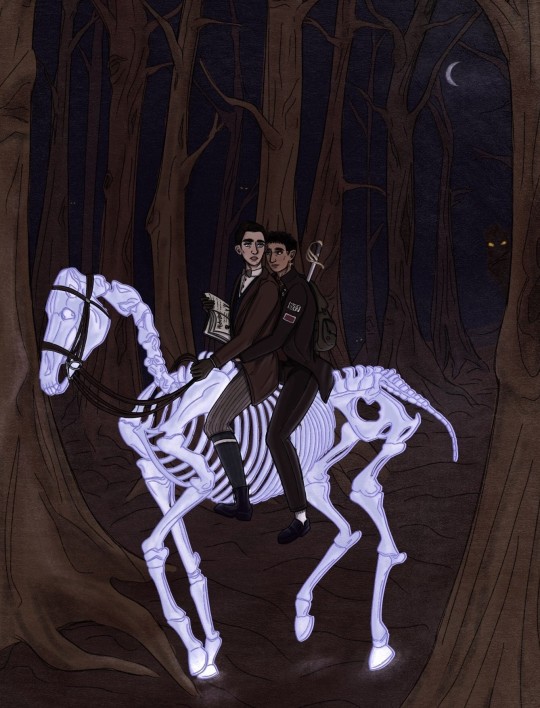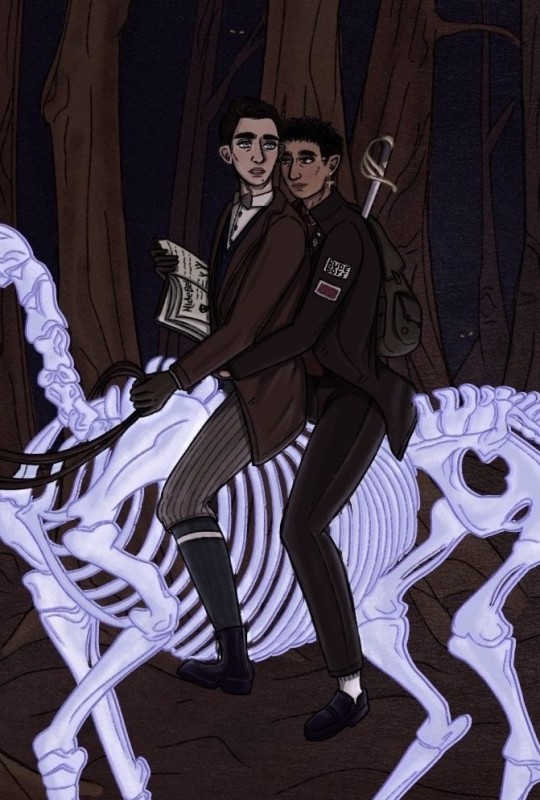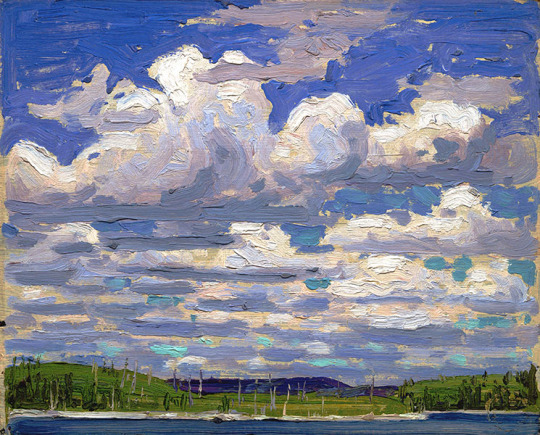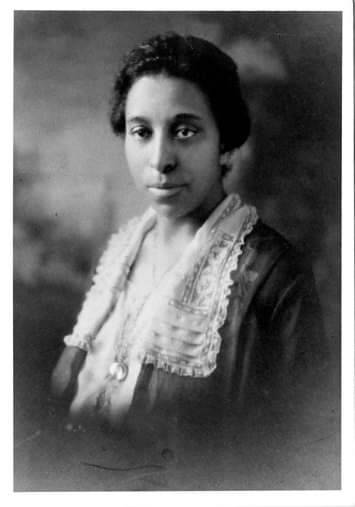#summer 1915
Explore tagged Tumblr posts
Text

Bloomsbury group, July 1915: Lady Ottoline Morrell; Maria Huxley (née Nys); Lytton Strachey; Duncan Grant; Vanessa Bell
#vanessa bell#duncan grant#lady ottoline morrell#maria huxley#lytton strachey#1915#july 1915#summer 1915#vanessa bell 1910s#duncan grant 1910s#vanessa and duncan#1910s#vanessa and lytton#duncan and lytton#vanessa age 38#me age 38#vanessa profile#vanessa profile left
8 notes
·
View notes
Text









In Washington, D.C., the first stone of the Lincoln Memorial is put into place on February 12, 1915.
#Lincoln Memorial#first stone#12 February 1915#110th anniversary#US history#Washington DC#summer 2009#original photography#architecture#USA#sculpture#National Mall#cityscape#Greek Revival–style#Henry Bacon#Daniel Chester French#tourist attraction#landmark#US Capitol#reflecting pool#Washington Monument
2 notes
·
View notes
Text

Iridescent
#ttte humanized#ttte thomas#myart#namachuki#what if you died and went to heaven but some small man said#haha wait a second do you remember what happened in the summer of 1915?
120 notes
·
View notes
Text

Tom Thomson
Summer Day
Summer 1915
#tom thomson#canadian artist#canadian art#canadian painter#canadian painting#landscape#landscape aesthetic#nature#aesthetic#beauty#modern art#art history#aesthetictumblr#tumblraesthetic#tumblrpic#tumblrpictures#tumblr art#tumblrstyle#artists on tumblr
2K notes
·
View notes
Text


"Sometimes when animals die, they don't know they are dead. They simply roam the woods forever."
Edwin and Charles had been sent to a forest in the Southern countryside following reports of something taking unsuspecting ghosts that strolled through them at night, and thought it best to scope out the area and search for clues before it got dark.
On the outskirts of where the trees fade into country plain, they come across a summer home attached with vacant horse stables. The owners do not appear to be present and the land looks overgrown and unkept, so it's safe to assume the place is abandoned. As the two walk out and look to the vast plain outside the forest, they see something peculiar in the distance.
They've seen a few animal spirits in their years of investigating, but never have they seen one of a horse. Edwin looks at the creature with awestricken eyes and approaches it slowly.
"When i was alive, my family kept a a horse for me in a stable outside our estate." Edwin is careful not to startle the creature as he moves closer, Charles following a few steps back. The cool light it radiates contrasts with the orange hues in the now setting sky. "I never had many friends in life and my parents never kept pets, so i found her one of my only companions throughout my childhood. My father sold her once i began public school."
"And this one, it reminds you of her, does it?" Charles asks quietly, as not to disturb both the creature and whatever state Edwin is in that he feels compelled to open up about his past.
Edwin considers for a moment. "Yes, actually, I..." He pauses.
It's been so long that he doesn't realize it at first, but the summerhouse is all the sudden very familiar. It starts to come back to him, distant memories of the old cottage of the family friend his horse was sold to that he visited during summer break. The summer of 1915 was the last time he visited his old friend in these stables.
There's no evidence that this is his horse, there's probably been dozens of horses here in the years since. Still, the way it responds to Edwin's touch when he finally comes close enough to gently rest a hand on it's skeletal neck: relaxed, almost leaning into it, makes hope bloom in his chest. It's when she leans her head forward, pressing her muzzle against his chest, that Edwin knows it's her. It was a strange gesture, and one he used to complain would dirty the front of his vest, but it was always her strange way of greeting.
Charles rests a hand on his shoulder, and Edwin is startled out of his nostalgia-induced trance. "Y'know mate, i might have some horse riding equipment still in my bag from the case of the disappearing farm. Might be easier to get around these woods at night with a glowing horse." Charles's smile is bright, and Edwin feels impossibly warm under the companionship of his two oldest friends. Edwin turns to him with a sparkle in his eyes, only partially from the glow of the horse in front of him.
"Brilliant idea, Charles."
#Ficlet under the cut#Deeply sorry for the quality please click#If anyone has horse name ideas feel free to drop em#Edwin will always be my favorite horsegirl#dead boy detectives#payneland#charles rowland#edwin payne#save dead boy detectives#dbda#dbda fanart#dbda fic#antichrists art
301 notes
·
View notes
Text
Movies To Watch In 2025
Black Swan (2010)
The White Crow (2018)
The Dancer (2017)
Mao's Last Dancer (2009)
Girl (2018)
Silk Stockings (1957)
Polina (2016)
Incendies 2010
Berthe Morisot (2012)
Summer in February (2013)
Helene (2020)
Modigliani (2004)
Camille Claudel, 1915 (2013)
Mona Lisa's Smile (2003)
Final Portrait (2017)
Edward Munch (1974)
Goya's Ghosts (2006)
Caravaggio 1986
Frida (2002)
Loving Vincent (2017)
Séraphine (2008)
Girl with a Pearl Earring (2003)
Renoir (2012)
The Eternity's Gate (2018)
Portrait of a Lady on Fire (2019)
Call Me By Your Name (2017)
Kill Your Darlings (2013)
Little Women (2019)
Dead Poets Society (1989)
Good Will Hunting (1997)
Maurice (1987)
Before Sunset (2004)
School Ties (1992)
The Skulls (2000)
The Emperor's Club (2002)
Cracks (2009)
The Riot Club (2014)
Picnic at Hanging Rock (1975)
Doctor X (1932)
Never Let Me Go (2010)
Nocturama (2016)
Mr. Harrigan's Phone (2022)
The Holdovers (2023)
The Handmaiden (2016)
Rope (1948)
Cruel Intentions (1999)
A Beautiful Mind (2001)
Dorian Gray (2009)
Sherlock Holmes (2009)
The Imitation Game (2014)
The Theory of Everything (2014)
Tolkien (2019)
The Dreamers (2003)
Miller’s Girl (2005)
An Education (2009)
Jane Eyre (2011)
A Dangerous Method (2011)
Christopher and His Kind (2011)
Practical Magic (1998)
Knives Out (2019)
The Craft (1996)
Twilight (2008)
The Addams Family (1991)
Atonement (2007)
God's Own Country (2017)
Atlantis (2001)
Hugo (2011)
Stardust (2007)
A Series of Unfortunate Events (2004)
The Mummy (1999)
Rushmore (1998)
Wicked (Upcoming, no set release year yet)
Return to Oz (1985)
Pan’s Labyrinth (2006)
The Secret of NIMH (1982)
Crimson Peak (2015)
#dark academia#romantic academia#chaotic academia#books and coffee#light academia#moodboard#quotes#dark academia aesthetic#academia aesthetic#dark academia moodboard#soft academia#soft aesthetic#classic academia#light academia moodboard#light academism#dark academia vibes#darkacademia#aesthetic#literature academia#source: pinterest#pinterest moodboard#not my oc#images from pinterest#art academia#movies#movie recommendation
337 notes
·
View notes
Text
Summer is a fairy who, in three or four days, turns nature green again.
Anaïs Nin, in a diary entry dated 23 May 1915 featured in The Early Diary of Anaïs Nin, 1914-1920
284 notes
·
View notes
Note
I don't know why people are suddenly so weird about body hair. I live in Germany and when my mom went to school one girl in her class went to the USA on summer vacation. When she came home she told everyone "Did you know American girls shave their armpits? That's so weird!" and everyone agreed that it's weird. That was in the 70s. I was born in the early 90s and when I became a teenager mandatory shaving was still kinda new. I hope people become more normal about hair again. It's completely natural and in my opinion pretty too
Yeah the individual country differences are also interesting. I know there's the famous "is it true that French babes don't shave their pits?" exchange in Home Alone, and that was in the 1990s. I think the first Milady Decollete ads that are often cited as the beginning of mainstream post-Roman body hair removal for women, c. 1915-17, were exclusively run in the US. Though Britain picked up on it not long after, as I understand. And like I said, even within the US I've read nonjudgmental descriptions of women's armpit hair in literature as late as the mid-1920s. So it was far from a done deal, culturally, when those first ads ran.
I'm solidly neutral on the look of it, myself. I don't think it looks good or bad in particular; I'm not turned on or turned off by it. It's not one of the main things I notice about a woman, physically, when evaluating if I'm attracted to her or not. But I do think it's so weird that it's been arbitrarily declared Ugly and Gross for JUST WOMEN and we have to put all this effort into removing it whether we want to or not.
(If you want to, great! I know a lot of people do for sensory or personal aesthetic reasons! But others either actively don't want to or just don't care and find it a hassle, and they shouldn't have to.)
#ask#anon#body hair#beauty standards#my mother used to tell me not shaving my legs was unhygienic#I asked her why it was hygienic for men and she never had a good answer#womp womp
100 notes
·
View notes
Text

Mousetrapped Weekend Filler #1: The Winkler Street Orphans, Summer 1915
Sorry, weekends are when I recover and work on comics for the next week, but I will try to post production art.
372 notes
·
View notes
Text

Title: Summer Day
Artist: Tom Thomson
Date: 1915
Style: Art Nouveau
Genre: Landscape
#art history#art#painting#artwork#history#museums#culture#vintage#curators#art nouveau#landscape#tom thomson#classicalcanvas
621 notes
·
View notes
Text
















An act of the U.S. Congress creates the United States Coast Guard as a branch of the United States Armed Forces on January 28, 1915.
#act of the U.S. Congress#United States Coast Guard#28 January 1915#U.S. Coast Guard Barque Eagle#Golden Gate Bridge#San Francisco#Architecture#Eureka#California#US Virgin Islands#Charlotte Amalie#Point Cabrillo Light Station#Port Angeles#lighthouse#Pigeon Point Light Station#Washington#National Naval Aviation Museum#Pensacola#Florida#Point Arena Lighthouse#summer 2017#travel#110th anniversary#US history#Newfoudland#Canada#Vancouver#original photography#vacation#tourist attraction
3 notes
·
View notes
Text
youtube
The Ultimate Film Studies Watchlist:
Pre-1920s 4:52 The Films of the Edison Labs 6:05 The Films of Louis and Auguste Lumiére 6:57 The Big Swallow (1901) 7:56 Le Voyage Dans La Lune (1902) 9:04 The Great Train Robbery (1903) 10:07 Fantasmagorie (1908) 10:56 Suspense (1913) 11:41 The Birth of a Nation (1915) 13:48 Intolerance (1916) 14:56 J'accuse (1919)
The 1920s 15:52 The Cabinet of Dr. Caligari (1920) 16:46 The Phantom Carriage (1921) 17:29 Haxan (1922) 18:07 Sherlock Jr. (1924) 18:51 Greed (1924) 19:33 The Last Laugh (1924) 20:25 Battleship Potemkin (1925) 22:25 A Page of Madness (1926) 23:10 Metropolis (1927) 23:51 Napoleon (1927) 25:02 Sunrise: A Song of Two Humans (1927) 25:43 The Passion of Joan of Arc (1928) 26:57 Un Chien Andalou (1929) 27:22 Man with a Movie Camera (1929)
The 1930s 28:50 M (1931) 29:35 Freaks (1932) 30:24 The Testament of Dr. Mabuse (1933) 30:54 Duck Soup (1933) 32:04 L'Atalante (1934) 33:01 Modern Times (1936) 33:36 Snow White and the Seven Dwarves (1937) 35:45 Stagecoach (1939) 36:26 The Rules of the Game (1939) 37:48 Gone with the Wind (1939)
The 1940s 39:18 The Great Dictator (1940) 39:59 Fantasia (1941) 41:20 Citizen Kane (1941) 43:15 To Be or Not To Be (1942) 44:56 Meshes of the Afternoon (1943) 45:49 Casablanca (1943) 46:56 Double Indemnity (1944) 48:18 Ivan the Terrible (1944) 48:51 Beauty and the Beast (1946) 49:50 Paisan (1946) 50:39 Brief Encounter (1946) 51:25 The Bicycle Thieves (1948) 52:43 Children of the Beehive (1948) 53:15 The Red Shoes (1948) 54:17 The Third Man (1949)
The 1950s 55:35 Sunset Blvd. (1950) 56:28 Los Olvidados (1950) 57:26 Rashomon (1951) 58:42 Singin' in the Rain (1952) 59:34 Tokyo Story (1953) 1:00:59 Ugetsu (1954) 1:01:35 Rear Window (1954) 1:02:42 The Night of the Hunter (1955) 1:03:42 Ordet (1955) 1:04:17 Pather Panchali (1955) 1:04:57 Seven Samurai (1956) 1:06:25 The Searchers (1956) 1:07:25 A Man Escaped (1957) 1:08:27 The Cranes are Flying (1957) 1:09:08 Touch of Evil (1957) 1:09:51 Vertigo (1958) 1:11:22 The 400 Blows (1959)
The 1960s 1:12:53 Psycho (1960) 1:13:42 L'Avventura (1961) 1:14:39 Lawrence of Arabia (1962) 1:15:35 La Jetee (1962) 1:16:10 Vivre Sa Vie (1963) 1:17:17 8 1/2 (1963) 1:18:04 It's a Mad, Mad, Mad, Mad World (1963) 1:18:50 The Umbrellas of Cherbourg (1964) 1:19:26 Woman in the Dunes (1965) 1:20:01 Persona (1966) 1:21:08 The Battle of Algiers (1966) 1:21:52 Andrei Rublev (1966) 1:22:42 Playtime (1967) 1:23:18 2001: A Space Odyssey (1968) 1:24:28 Kes (1969) 1:25:23 Once Upon a Time in the West (1969) 1:26:25 The Color of Pomegranates (1969) 1:27:07 Army of Shadows (1969)
The 1970s 1:28:25 The Conformist (1970) 1:28:53 A Touch of Zen (1971) 1:29:37 The Godfather Part I & II (1972-1974) 1:30:37 Pink Flamingos (1972) 1:31:45 The Spirit of the Beehive (1973) 1:32:39 The Exorcist (1973) 1:33:08 La Maman et la Putain (1973) 1:34:22 Badlands (1973) 1:34:53 The Conversation (1974) 1:35:32 A Woman Under the Influence (1975) 1:36:45 Jeanne Dielman 23 Quai du Commerce 1080 Bruxelle (1975) 1:37:52 Salo or the 120 Days of Sodom (1975) 1:39:05 Nashville (1975) 1:39:40 Jaws (1975) 1:40:47 Barry Lyndon (1975) 1:41:17 Taxi Driver (1976) 1:42:28 Eraserhead (1977) 1:43:37 Stars Wars (1977) 1:44:41 House (1977) 1:45:09 Alien (1979) 1:46:22 Apocalypse Now (1979) 1:47:32 Stalker (1979)
The 1980s 1:48:43 Raging Bull (1980) 1:49:33 The Shining (1980) 1:50:27 Pixote (1980) 1:51:10 Koyaanisqatsi (1982) 1:52:08 Videodrome (1983) 1:52:32 Ran (1985) 1:53:27 Come and See (1985) 1:54:23 Tenshi no Tamago (1985) 1:55:23 A Short Film About Killing (1988) 1:56:20 A City of Sadness (1989) 1:57:24 The Cook, The Thief, His Wife and Her Lover (1989) 1:58:31 Tetsuo: The Iron Man (1989) 1:59:42 Do the Right Thing (1989)
The 1990s 2:00:54 Goodfellas (1990) 2:01:48 Close-Up (1990) 2:02:49 A Brighter Summer Day (1991) 2:03:51 Man Bites Dog (1992) 2:04:42 Hardboiled (1992) 2:05:43 Satantango (1994) 2:07:12 Pulp Fiction (1994) 2:08:28 Clerks (1994) 2:09:34 The Lion King (1994) 2:10:21 La Haine (1995) 2:11:25 Cure (1997) 2:12:00 Festen (1998) 2:12:54 Beau Travail (1998) 2:13:27 Ghost Dog: The Way of the Samurai (1999) 2:14:22 The Matrix (1999) 2:15:10 American Movie (1999)
#cinema#the house of tabula#house of tabula#alfred hitchcock#stanley kubrick#fw murnau#francis ford coppola#akira kurosawa#watchlist#andrei tarkovsky#michael bond#luiza liz bond#martin scorsese#Youtube
38 notes
·
View notes
Text

Lucy Diggs Slowe (July 4, 1885 – October 21, 1937) was an American educator and athlete, and the first Black woman to serve as Dean of Women at any American university. She was a founder of Alpha Kappa Alpha sorority, the first sorority founded by African-American women.
Slowe was a tennis champion, winning the national title of the American Tennis Association's first tournament in 1917, the first African-American woman to win a major sports title. In 1922, Slowe was appointed the first Dean of Women at Howard University. She continued in that role for 15 years until her death. In addition, Slowe created and led two professional associations to support college administrators.
Lucy Diggs Slowe was born in Berryville, Virginia to Henry Slowe and Fannie Potter Slowe. While various sources put her birth year as 1885,[3][4] others have said 1883. She was one of seven children. Her father's occupation has been reported as a hotel operator, restaurant proprietor and farmer. He died before Lucy turned one and her mother died shortly after. Following her mother's death, Lucy and her sister Charlotte were raised by her aunt Martha Price in Lexington, Virginia. At thirteen, Lucy and her family moved to Baltimore, Maryland, where she attended the Baltimore Colored High and Training School. She graduated second in her class in 1904, receiving one of the two-sponsored scholarships to Howard from the Baltimore City School Board.
Slowe was the first person from her school to attend Howard University, the top historically black college in the nation, at a time when only 1/3 of 1% of African Americans and 5% of whites of eligible age attended any college.
After graduation in 1908, Slowe returned to Baltimore to teach English in high school. During the summers, she started studying at Columbia University in New York, where she earned her Masters of Arts degree in 1915.
#black tumblr#black history#black literature#black excellence#black community#civil rights#black history is american history#black girl magic
116 notes
·
View notes
Note
I’m Jewish through my dad but I wasn’t raised in the community(i learned what Purim was two weeks ago, i was fully not in it), so when I got to college last august I decided to really dive in and it’s been a beautiful sort of homecoming for me. I joined SAEPi and got into Chabbad leadership at my campus, and I’m almost at the point where I can do the Chabbad Shabbat prayers before and after dinner without stumbling over my words. Gonna surprise my grandma if I see her in the summer. Anyways.
When October 7th happened it was a shock to my system, because I was a baby Jew barely getting my feet. My parents never mentioned antisemitism to me as something that could affect me in the future, it was always a thing of the past. But I was right there standing in the doorway between jew-ish and Jewish, and it pushed me over the edge. I had many friends with family in Israel. I had a couple friends whose friends died in the attack. Everyone in that group was my family. It felt personal.
When the march in dc happened I went with one of my friends, and it was sad, but amazing to see in person how strong we are. In the plane terminal on the way home he and I got cornered and called baby killers, among other things, because he was wearing a kippa and his Israeli first responder coat. That was my first time experiencing antisemitism and it was terrifying, even though I didn’t get hurt. It was terrifying even though my friend was built like a tank and would’ve protected me. It was terrifying just to sit in the train car with him and watch a woman stare at him with wide eyes like he was some kind of criminal. I stepped closer to him as if to remind her he’s human. I stared back at her with just as much fear and watched her snap out of it, confused.
Last week was holocaust awareness week at my college, and one of the things I did was spend a couple hours in the plaza reading the names of people that died. I found 34 Feldmans and Fotts. I found family names, Chana and Fayge and Jeshua and Sophia Feldman one after the other, and still am wondering if that was part of my family that didn’t make it to the US in time.
I called my grandma and asked for everything she could remember about her family lineage and how we got here, everything she had from that part of her life. I thought that there would be plenty to lean into, family recipes and heirlooms and stories, but there was barely anything. She has a Star of David necklace and a ton of repressed memories, next to nothing else. The recipes I could find were through my great aunt, some short instructions from my great grandmother on the back of a letter she sent to the aunt about what to ask for from a kosher butcher.
My family made it here in 1915 and 1921, they escaped before the holocaust, but they still weren’t untouched because of the ways they were ostracized and othered when they got here. My grandmother will barely admit she’s Jewish because none of her kids passed it on, it’s easier for her to let it go. I didn’t understand this until I realized that one couldn’t be hurt by the grief and pain of a family they aren’t part of.
Even those that survive are not left unscarred.
How could this not be personal? How could it not be generationally affective when it’s pushed so many to minimize their Jewishness out of self preservation? Raise their kids thinking they aren’t Jewish and hope their names never end up on a list of living or dead Jews? People still don’t see us as human. the antisemites still want to scar us. They want us to forget who we are.
It’s unreal to me when goyim act like American Jews in the current day are unaffected by the past and safe from antisemitism. I’ve been here less than a year and have been screamed at in an airport, have uncovered serious intergenerational trauma, and realized that of my Jewish family I have nothing to hold on to but a torn in half piece of paper with a sentence long tangent about brisket.
We are strong and we will outlive them, but god are we still fucking fighting for our lives.
.
#jewish vents#antisemitism#diaspora#long post#Jewish#judaism#this is an amazing post anon I'm sorry I lack the words to respond#thank you so much for sharing
115 notes
·
View notes
Text
bored so i used a random number generator (between 1899-1950) to change the year that gang members who died in 1899 died
Sean MacGuire-1932, dies at around age 53-55.
Leonard Summers-1948, dies at age 68.
Arthur Morgan-1915, dies at age 52.
Kieran Duffy-1944, dies at age 73-74.
Molly O’Shea-1902, dies at age 28-33.
Susan Grimshaw-1913, dies at age 62-64.
Hosea Matthews-1906, dies at age 62.
so, how do you guys think they died?? and do you like this version better?
#rdr2#red dead redemption 2#red dead redemption two#red dead fandom#arthur morgan#sean macguire#lenny summers#hosea matthews#molly oshea#susan grimshaw#kieran duffy
58 notes
·
View notes
Text

The artist's wife Musse in a white summer dress standing on the terrace looking at the sunset over the sea, 1915, Paul Fischer
64 notes
·
View notes